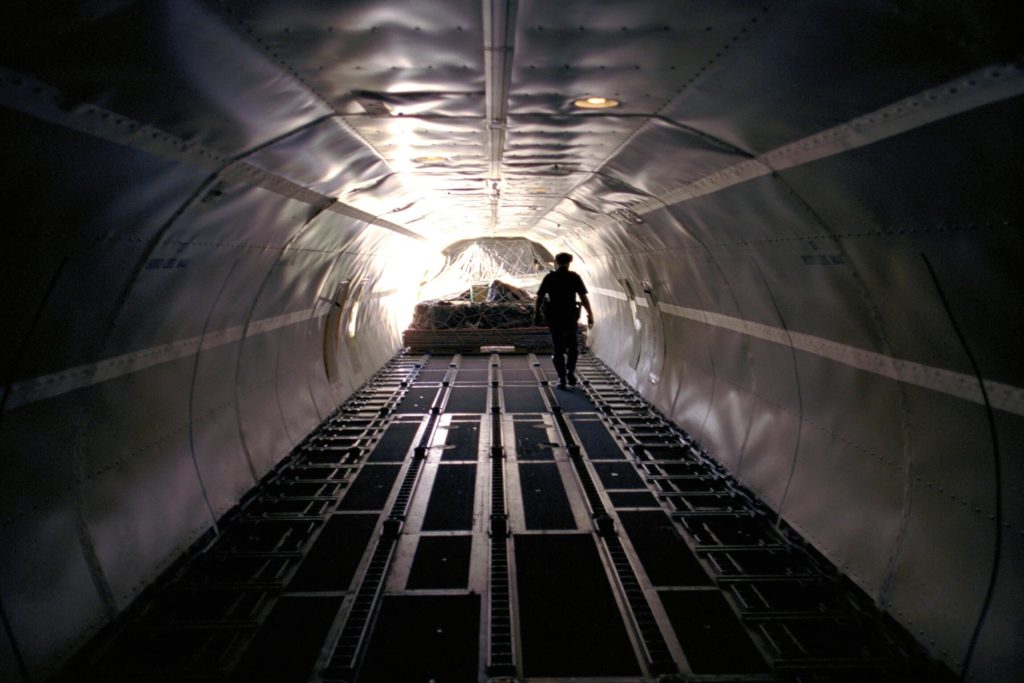Acquisitions support airfreight forwarder cross-border customs growth
DSV, AIT Worldwide, Kuehne+Nagel acquisitions strengthen cross-border capabilities
The move toward consolidation among freight forwarders in recent years is picking up steam, with DSV Panalpina announced its acquisition of Agility’s Global Integrated Logistics unit just last week. The acquisitions of large-scale and more targeted logistics businesses is supportive of growth in cross-border airfreight and other shipments at a time when customs changes are making processes increasingly complex, forwarders recently told Air Cargo World.

Among the major changes in customs regulations recently are the U.K.’s exit from the European Union, or “Brexit,” which has led to substantial changes in how cargo moves to and from Europe. Chicago-based AIT Worldwide Logistics had targeted Europe for its expansion plans and looked early in the Brexit process for a way to accommodate easier cross-border trade with the U.K. and Europe, President and CEO Vaughn Moore told Air Cargo World.
“We were on the lookout for an acquisition of a company that had freight forwarding and customs brokerage expertise in the U.K. particularly,” Moore said. “We ended up buying a company called ConneXion that had the local heroes, the experts on the ground, so that by the time all this Brexit craziness was going full throttle, we had experts in place to service our clients, and they were able to handle it in real-time. If I were having to deal with [the customs changes] from the U.S., I think that would have been very problematic.”
The ConneXion acquisition took place late in 2018, well before the trade deadline at the beginning of 2020, allowing AIT time to integrate ConneXion’s U.K. customs expertise into AIT’s network.
“I had some people asking me, when Brexit was going crazy, ‘why are you going into that burning building that way?’ We purposely chose to go get experts for this very reason. So that today, we’re in great shape and our customers love what we were able to provide during this difficult time,” Moore said.
See also: Retail Race: Customs rushes to keep up with cross-border e-commerce
Targeted acquisitions have also helped forwarders expand their customs expertise in other regions in recent years, including in North America, David Peng, executive vice president for DSV North America, told Air Cargo World. DSV agreed to acquire California-based UTi Worldwide in 2015 in a deal that “essentially, overnight gave us a significant presence in the segment on the southern border,” Peng said, “so today we have about 1 million square feet of warehouse and cross-docking facilities on the U.S.-Mexico border divided across nine locations, with six on the U.S. side and three in Mexico, and DSV is now a top 10 North American 3PL.”
The freight forwarder has previously utilized Foreign Trade Zones (FTZs) in its cross-border operations and for imports into the U.S., but told Air Cargo World that it has seen a shift away from FTZ utilization and customs admissions during the pandemic.
“That’s really driven by the capacity constraints where there’s really not much time to put your goods into an FTZ,” Peng said. “Due to the delays and difficulties and all the congestion, we see more shipments move straight to regular clearance and consumption.”
Capacity remains the main issue in DSV’s North American operations, Peng said. One way the forwarder has worked to address the problem is by substantially growing its airfreight charter network, which has helped support its multimodal solutions and ocean freight customers, as well.
“Obviously, with the severe capacity disruptions that we are currently facing, our charter network has been absolutely invaluable to many of our customers, including the ones we serve on the border,” Peng said. “There’s a distinct competitive advantage and we’re very fortunate to have this additional capacity to present to our clients.”
Many of the capacity solutions today are temporary measures to make up for the lack of passenger belly space, but the changes in customs procedures and shifts in trade lanes are here to stay. Freight forwarders are adjusting accordingly with a heightened focus on customs clearance offerings and in-demand trade lanes.
The planned acquisition of Apex Logistics by Kuehne+Nagel, announced in February, is a prime example of a Europe-based forwarder targeting the Asia-Pacific trade lane, which Boeing expects to lead cargo growth over the next two decades. Freight forwarders like Apex, with large cross-border footprints on in-demand trade lanes or well-developed customs brokerage operations, like the former UTi and ConneXion, are likely to remain promising acquisition targets for other 3PLs looking to expand their own operations in a consolidation-heavy forwarding market.


